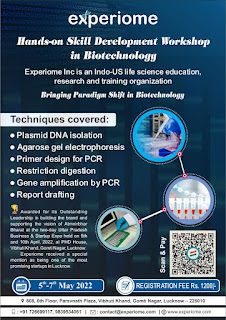Reverse Breeding | Experiome Inc
Reverse Breeding
Reverse breeding is used to establish parental lines for desired hybrid lines (not genetically modified). Homozygous lines are produced from heterozygous plants to achieve this. This is accomplished by introducing a gene that prevents recombination during meiosis into the heterozygous line (the hybrid). As a result, the genetically engineered plant's haploid gametes have completely non-recombined chromosomes. After that, the gametes can be used to create plants. Only non-genetically modified plants are used, and those that have the transgenic DNA are removed. Genes that aid recombination in meiosis can be suppressed via RNAi. Meiotic recombination involves a number of genes. Biotechnology Training Program in Lucknow
Asy1 or sds, which ensure that homologous chromosomes pair in the first phase of meiosis, are genes that can be silenced. Furthermore, the spo11-1gene, which is responsible for the occurrence of double-strand breaks during recombination, can be turned off. Additionally, the dmc1 gene can be switched off, which aids in the exchange of chromosome segments during recombination.
One copy of the RNAi transgene is introduced into the plant to obtain the desired effect. Due to the fact that meiotic recombination is disabled, only half of the haploid gametes will contain the transgene during meiosis. The number of chromosomes in the microspores generated is then doubled. Plant microspores are unripe pollen grains that can become embryos in tissue cultures. Microspores are haploid; however, following chromosomal number doubling, completely disome, homozygous plants can be produced. The twofold haploid approach is another name for this method. Transgenic plants are then removed. Only plants without the RNAi construct are used in this method. Biotechnology Training and Research Lab in Lucknow
The original heterozygote genotype is reconstructed and seed produced using these diploid, homozygote plants as parents. The reverse breeding technique's end product is not transgenic since it lacks any foreign genetic material or mutations in the genome.

Comments
Post a Comment